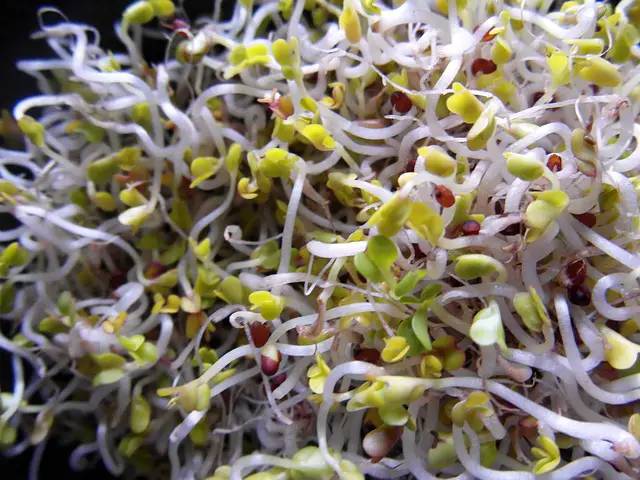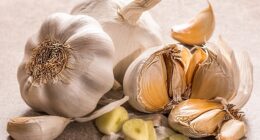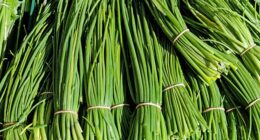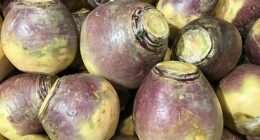Alfalfa sprouts are derived from alfalfa seeds and have a mild, slightly nutty taste. Broccoli sprouts come from broccoli seeds and have a distinctively tangy, peppery flavor.
TL;DR Alfalfa sprouts Vs. Broccoli sprouts
Alfalfa sprouts and broccoli sprouts are both nutritious sprouts that can be eaten raw, cooked, or sprouted. Alfalfa sprouts have a mild, nutty flavor, while broccoli sprouts have a spicier, radish-like flavor. Alfalfa sprouts are high in vitamins C and K, while broccoli sprouts are high in sulforaphane, a compound with antioxidant and anti-cancer properties. Both sprouts are safe to eat in moderation, but broccoli sprouts may cause some people to experience bloating or gas. Ultimately, the best sprout for you will depend on your personal preferences and dietary needs.
What are alfalfa sprouts?
Alfalfa sprouts are young shoots that come from the seeds of the alfalfa plant, scientifically known as Medicago sativa. These tiny green sprouts have been consumed for centuries and are a popular ingredient in salads, sandwiches, and wraps. With their delicate yet crunchy texture, they add a refreshing element to any dish.
What sets alfalfa sprouts apart is their mild and slightly nutty flavor. They offer a subtle taste that doesn’t overpower other ingredients in a meal. Plus, they provide an appealing visual contrast with their vibrant green color.
Aside from being low in calories, alfalfa sprouts are rich in essential nutrients such as vitamins A, C, E, and K. They also contain minerals like calcium and iron while packing a punch of antioxidants that help protect cells against damage caused by harmful free radicals.
Alfalfa sprouts are an excellent source of dietary fiber which aids digestion and promotes overall gut health. Not only do they contribute to regular bowel movements but they also assist in maintaining healthy cholesterol levels.
What are broccoli sprouts?
Broccoli sprouts are tiny, edible plants that are harvested just a few days after the broccoli seeds have germinated. These vibrant green sprouts closely resemble alfalfa or bean sprouts but offer a distinct flavor and texture. Packed with nutrients, they have gained popularity in recent years for their potential health benefits.
Broccoli sprouts boast high levels of sulforaphane, a powerful antioxidant compound that has been linked to various health advantages. Research suggests that sulforaphane may support heart health, aid in detoxification, and even possess anti-cancer properties.
What sets broccoli sprouts apart from other types of sprouts is their unique taste. They possess a mild yet peppery flavor which can add depth to salads, sandwiches, stir-fries, and wraps. Some people also enjoy blending them into smoothies for an added nutritional boost.
Alfalfa sprouts Vs. Broccoli sprouts – Key differences
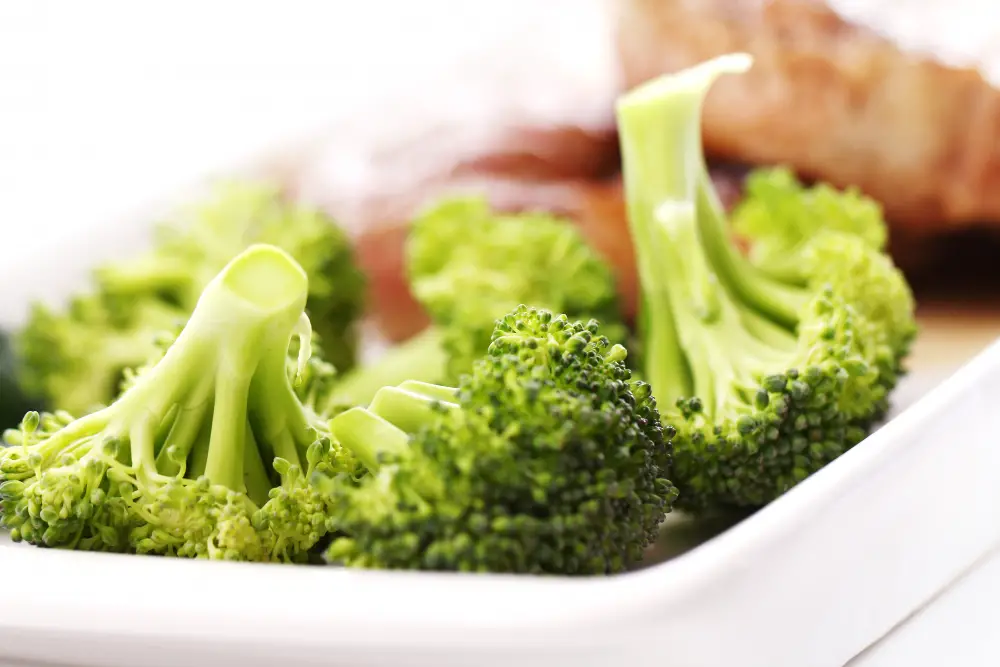
Alfalfa Sprouts:
- Origin: Derived from alfalfa seeds (Medicago sativa).
- Flavor: Mild, slightly nutty taste.
- Appearance: Thin, green stems with small leaves.
- Culinary Use: Commonly used in sandwiches, salads, and wraps for added crunch and mild flavor.
- Nutritional Profile: Good source of vitamins A, C, and K, as well as minerals like calcium and iron.
Broccoli Sprouts:
- Origin: Derived from broccoli seeds (Brassica oleracea).
- Flavor: Tangy, peppery taste.
- Appearance: Thicker stems with tiny leaves.
- Culinary Use: Often used for their distinct flavor and can be added to sandwiches, salads, and other dishes.
- Nutritional Profile: High in sulforaphane and other beneficial compounds, potential health benefits include antioxidant and anti-inflammatory properties.
Alfalfa sprouts Vs. Broccoli sprouts – Health benefits
Alfalfa Sprouts:
- Nutrient-Rich: Alfalfa sprouts contain essential nutrients, including vitamins A, C, and K, as well as minerals like calcium, iron, and potassium.
- Antioxidant Properties: They contain antioxidants that help protect against cellular damage caused by free radicals.
- Digestive Health: Alfalfa sprouts are a source of dietary fiber, which aids in digestion and promotes regular bowel movements.
- Potential Cholesterol Management: Some studies suggest that alfalfa sprouts may help lower cholesterol levels, although further research is needed.
Broccoli Sprouts:
- Sulforaphane Rich: Broccoli sprouts are particularly high in sulforaphane, a compound known for its potential health benefits, including antioxidant, anti-inflammatory, and anticancer properties.
- Cardiovascular Health: Sulforaphane in broccoli sprouts may have protective effects on the cardiovascular system, promoting heart health and reducing the risk of heart disease.
- Detoxification: Sulforaphane activates enzymes in the body that aid in detoxification processes, potentially supporting liver health.
- Immune Support: The rich nutrient content of broccoli sprouts, including vitamins C and E, may help support a healthy immune system.
Both alfalfa sprouts and broccoli sprouts offer various health benefits, with alfalfa sprouts providing a range of essential nutrients and potential digestive benefits, while broccoli sprouts are notable for their high sulforaphane content and associated health advantages.
How to cook with alfalfa and broccoli sprouts
Alfalfa and broccoli sprouts are both delicious and nutritious sprouts that can be cooked in a variety of ways. Here are a few ideas:
- Stir-fry: Add alfalfa and broccoli sprouts to your favorite stir-fry for a boost of nutrients and flavor. Cook them for 2-3 minutes, or until they are wilted but still crisp.
- Salad: Toss alfalfa and broccoli sprouts into your favorite salad for a fresh and healthy topping. They can also be added to sandwiches, wraps, or tacos.
- Soup: Add alfalfa and broccoli sprouts to your favorite soup for a nutrient-rich boost. They will wilt slightly as the soup cooks, but they will still retain their flavor.
- Steamed: Steam alfalfa and broccoli sprouts for a quick and easy side dish. They will only need to cook for a few minutes, or until they are bright green and tender.
- Roasted: Roast alfalfa and broccoli sprouts with your favorite vegetables for a healthy and flavorful snack or side dish. They will need to roast for 10-15 minutes, or until they are tender and slightly browned.
Here are some additional tips for cooking with alfalfa and broccoli sprouts:
- Rinse sprouts well before cooking. This will help to remove any dirt or bacteria.
- Don’t overcook sprouts. They should be cooked until they are wilted but still crisp.
- Sprouts can be cooked with other vegetables, such as carrots, onions, and peppers. This is a great way to add more nutrients to your meal.
- Sprouts can also be added to smoothies, soups, and salads. They are a great way to add a boost of nutrients to your favorite dishes.
How to grow sprouts at home
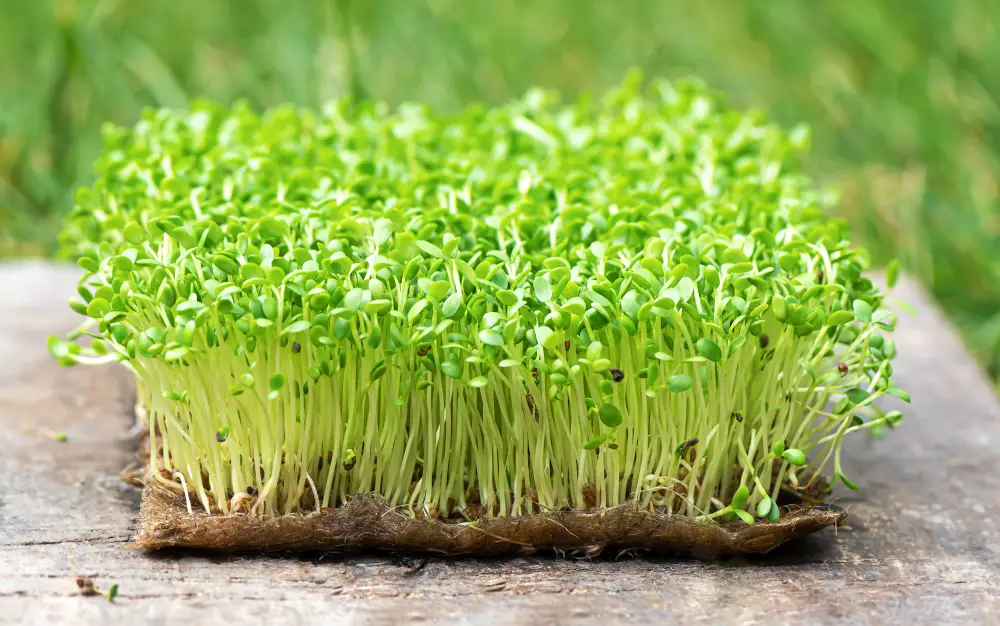
Growing sprouts at home is a simple and rewarding process. All you need are a few basic supplies and some patience. Here’s a step-by-step guide on how to grow sprouts in the comfort of your own home.
Select Sprouting Seeds
choose your sprouting seeds or beans. Popular options include alfalfa, broccoli, mung beans, and lentils. Make sure to purchase seeds specifically labeled for sprouting as they are free from any chemical treatments.
Soak the Seeds
Next, soak the seeds overnight in water to kickstart the germination process. Rinse them thoroughly before transferring them into a sprouting container or jar with drainage holes.
Drain and Rinse
Place the container in a warm and well-lit spot but out of direct sunlight. Rinse the seeds twice daily with fresh water to keep them moist and remove any excess starches or impurities.
Continue Rinsing
Repeat the process of rinsing and draining the seeds at least twice a day, ideally in the morning and evening. Ensure the sprouts are always kept moist but not waterlogged.
Provide Proper Air Circulation
While rinsing, tilt the jar at an angle to allow excess water to drain and air to circulate. This helps prevent mold or bacterial growth. Store the jar in a well-ventilated area away from direct sunlight.
Watch Them Grow
Within a few days, you will start to see tiny sprouts emerging from the seeds. Continue rinsing them daily until they reach your desired length – usually around 1-3 inches.
Harvest and Store
Once the sprouts have grown to your liking, give them a final rinse and gently remove any seed husks or debris. Drain well and store the sprouts in a clean, airtight container in the refrigerator. They can usually be stored for a few days.
Remember to practice good hygiene throughout the process by washing hands, using clean utensils, and maintaining a clean sprouting environment. Enjoy your fresh, homegrown sprouts in salads, sandwiches, stir-fries, or any other dishes of your choice.
Which one grows faster: Alfalfa sprouts or. Broccoli sprouts?
Let’s start with alfalfa sprouts. These tiny greens are known for their rapid growth rate. In just a few days, you’ll see them go from seeds to vibrant green shoots ready for harvest. The quick turnaround time makes alfalfa sprouts a popular choice for those looking for fast results.
On the other hand, broccoli sprouts take a bit longer to grow compared to alfalfa sprouts. While they still germinate fairly quickly, it can take up to 5-7 days before you can enjoy their delicate crunchiness on your plate.
The difference in growth rate between these two types of sprouts might not be significant enough to sway your decision when choosing which one to grow at home. It depends on your personal preferences and taste preferences.
How to consume sprouts safely?
Choose Fresh Sprouts: Select sprouts that are fresh, crisp, and have no signs of spoilage or mold. Avoid sprouts that have an off odor or sliminess.
- Clean Hands and Utensils: Wash your hands thoroughly with soap and water before handling sprouts. Ensure that all utensils, containers, and surfaces used for sprout preparation are clean.
- Rinse Sprouts Well: Before consuming sprouts, rinse them thoroughly under running water to remove any dirt or bacteria. Use a colander or strainer for easy rinsing.
- Cook Sprouts (Optional): Cooking sprouts can further reduce the risk of bacterial contamination. If you prefer, lightly steam or stir-fry sprouts before incorporating them into your dishes.
- Store Properly: Store sprouts in the refrigerator at or below 41°F (5°C) to slow down bacterial growth. Use them within a few days and discard any sprouts that show signs of spoilage.
- Be Cautious with High-Risk Groups: Pregnant women, young children, the elderly, and individuals with weakened immune systems should exercise extra caution when consuming raw sprouts due to a higher risk of foodborne illnesses.
- Monitor Recalls and Safety Advisories: Stay informed about any sprout-related recalls or safety advisories issued by health authorities. If there are concerns about sprout safety in your region, consider avoiding them until the situation improves.
It’s worth noting that sprouts, especially raw or lightly cooked ones, have been associated with occasional outbreaks of foodborne illnesses. By following these safety practices, you can minimize the risks and enjoy sprouts as part of a healthy diet.
Which lasts longer: Alfalfa sprouts or. Broccoli sprouts?
Alfalfa sprouts typically have a shorter lifespan compared to broccoli sprouts. On average, alfalfa sprouts can last for about 3-7 days when stored properly in the refrigerator. However, they may start to wilt or become slimy if not consumed within this time frame.
Broccoli sprouts tend to have a longer shelf life. They can last for up to 10-14 days when stored correctly in the fridge. This means that you’ll have a bit more time to enjoy your broccoli sprouts before they start losing their freshness.
To ensure that both types of sprouts stay fresh for as long as possible, it’s important to follow proper storage guidelines. Keep them refrigerated in an airtight container or bag and make sure they’re dry before storing them.
It’s worth noting that these are just general guidelines and individual circumstances may vary. Factors such as temperature fluctuations and handling practices can also affect the longevity of your sprouts.
Image Credits
Featured Image By – Gaby Stein from Pixabay
Image 1 By – Racool_studio on Freepik
Image 2 By – devmaryna on Freepik
